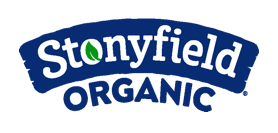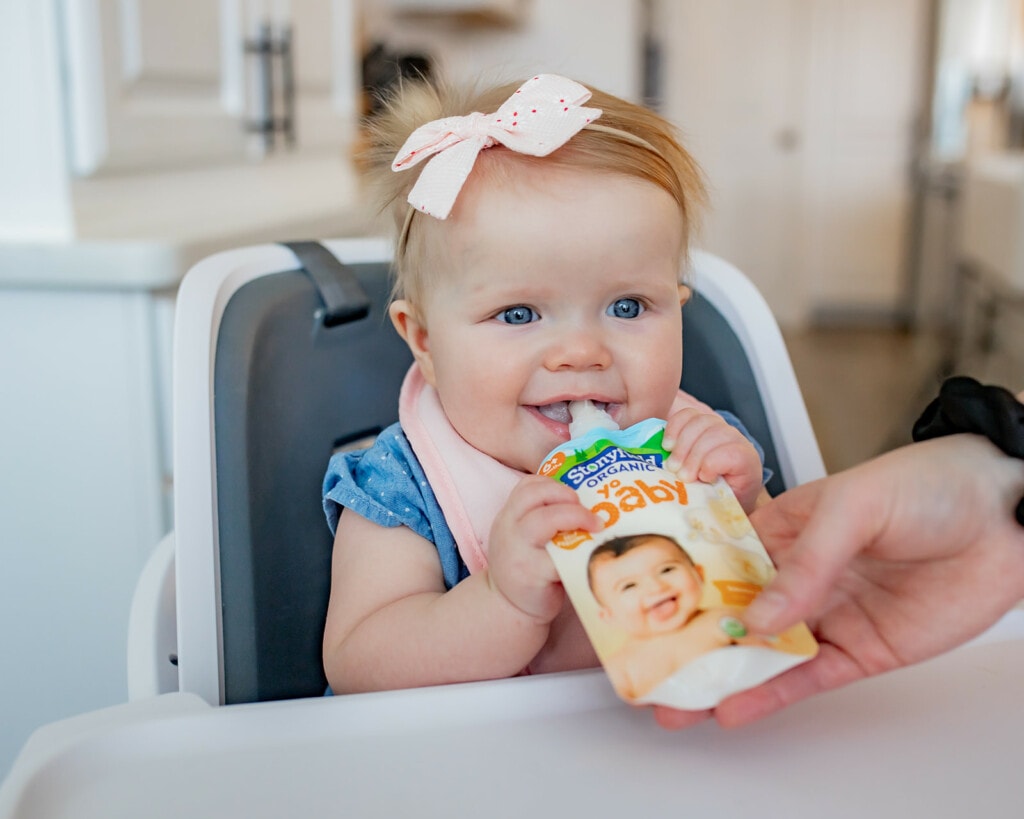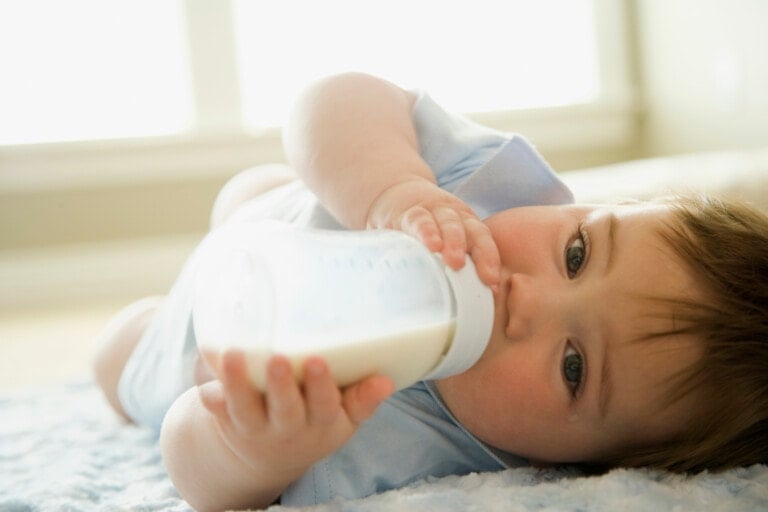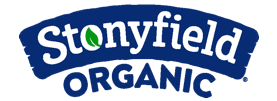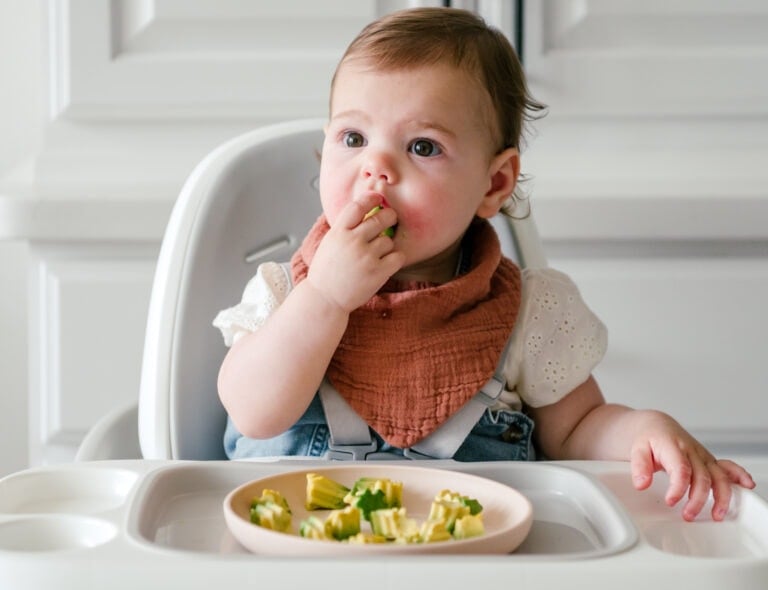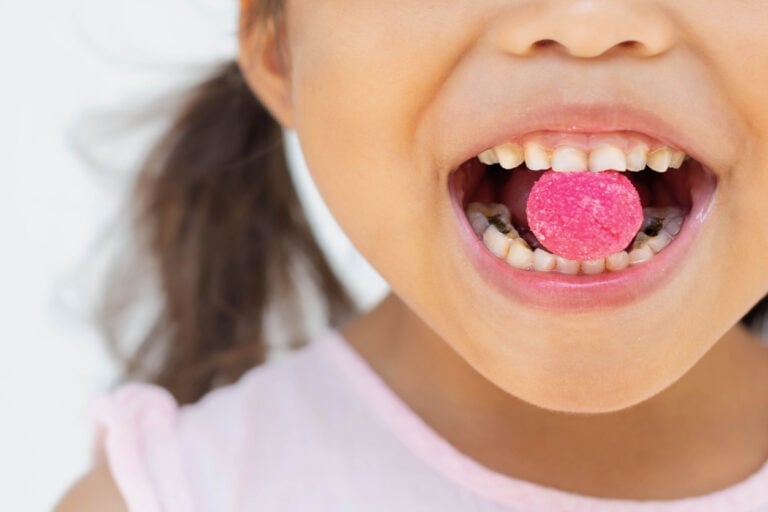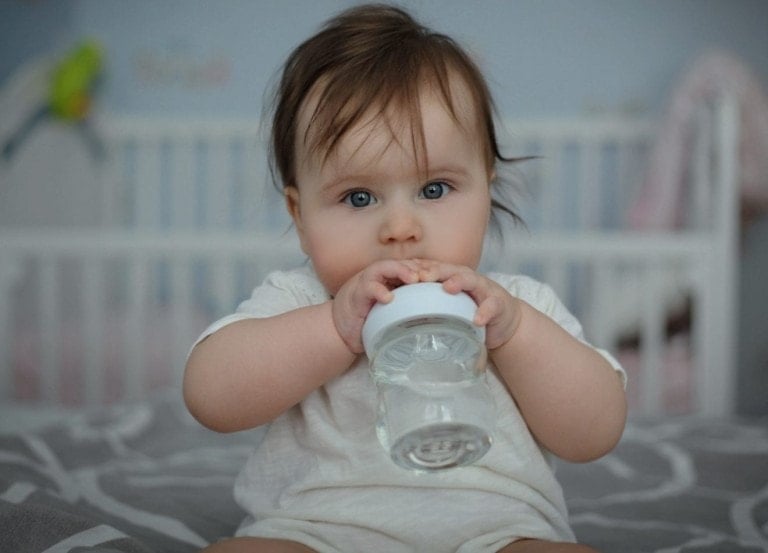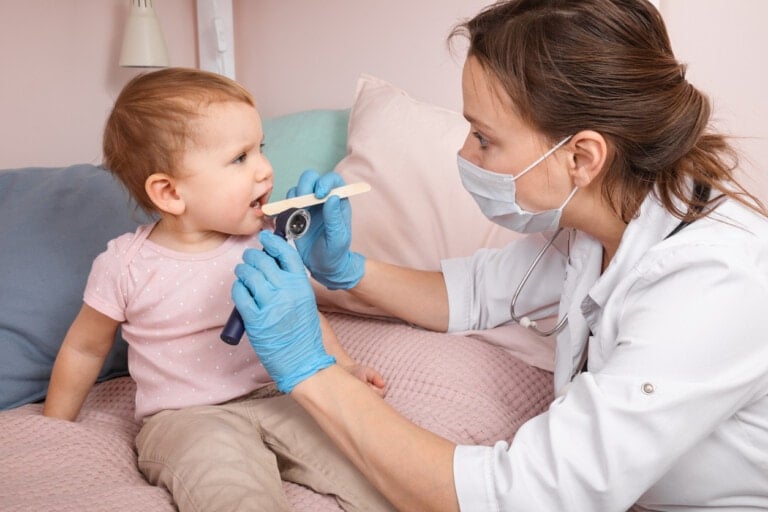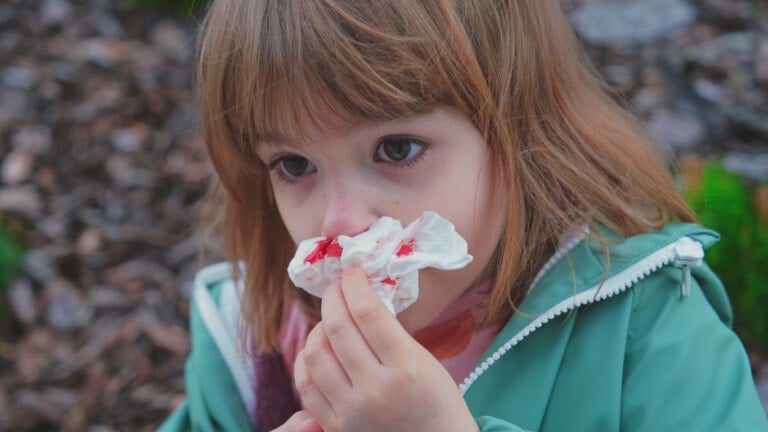There are a lot of fun milestones in a baby’s first year of life. One of them is starting solids. It can be messy, but it’s a sweet milestone as you watch them explore new textures and flavors. I was recently talking to a mom who was telling me about what foods she was giving her daughter now that she has reached this milestone. She had no idea that yogurt is a great first food for babies. People know that fruits and vegetables are good options to introduce to their little ones but so is yogurt! Here’s why yogurt might be a good fit for your baby, how you can introduce it to your baby, as well as our favorite yogurt for babies.
Why is yogurt good for babies?
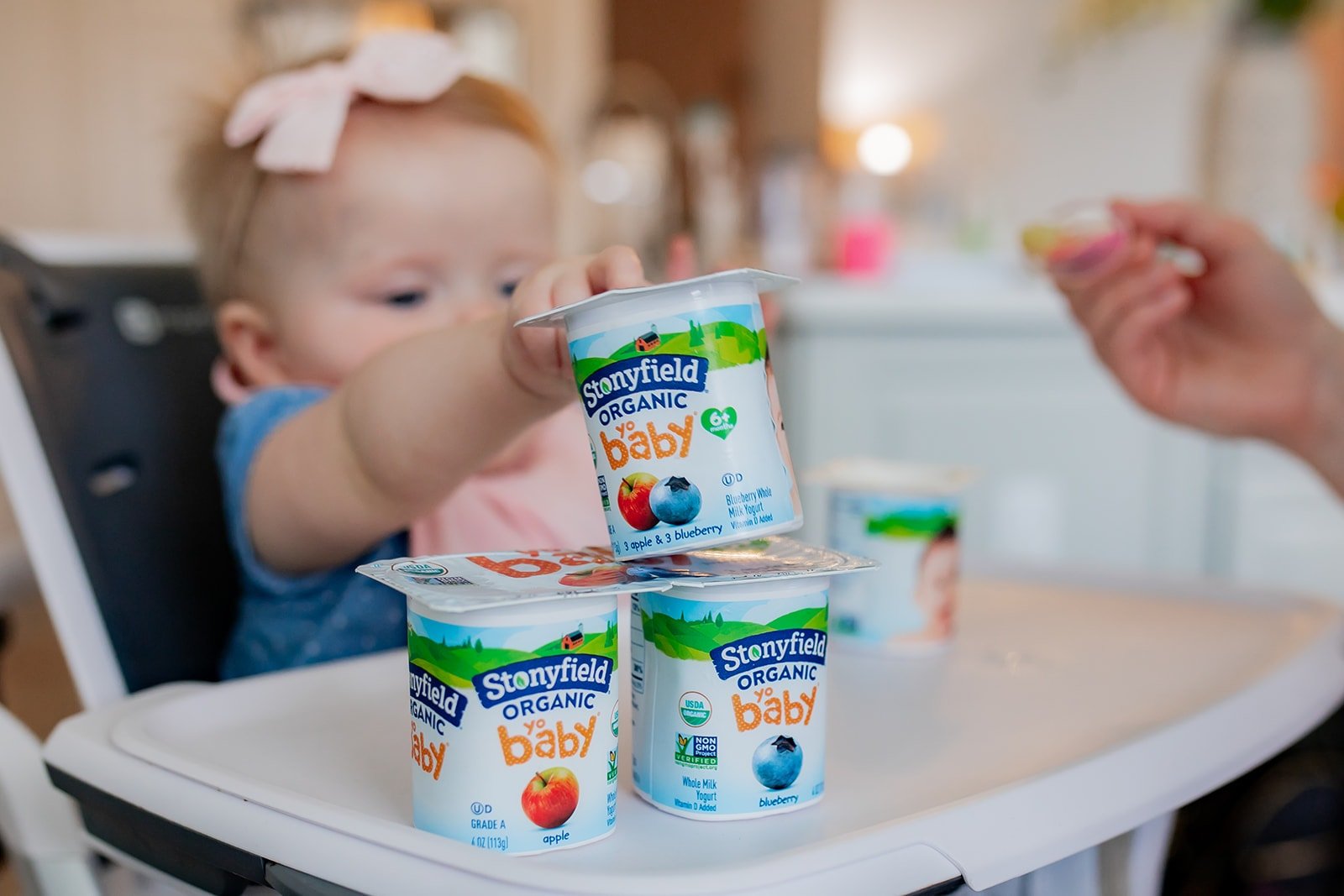
Yogurt is a great food option for babies six months old and older because of its nutritional value. It contains protein (which supports metabolism), calcium (good for healthy teeth and bones), and potassium (good for regulating blood pressure, metabolism, and bone health).
There are also some types of yogurts that contain probiotics, like Stonyfield Organic YoBaby yogurt cups. YoBaby yogurt cups nourish your baby with probiotic BB-12®, which has been shown to have a digestive health benefit when consumed regularly as part of a balanced diet and healthy lifestyle. (BB-12® is a registered trademark of Chr. Hansen.) The introduction of solids marks a time when different bacteria enter your baby’s tummy. The gut normally contains bacteria that help us maintain gut health, and probiotics are friendly bacteria that, when consumed regularly and in the right amounts, can be beneficial. And not only that, studies show that babies who take or eat foods with probiotics have shorter crying times. That’s something every parent can get behind!
Why can babies have yogurt and not milk?
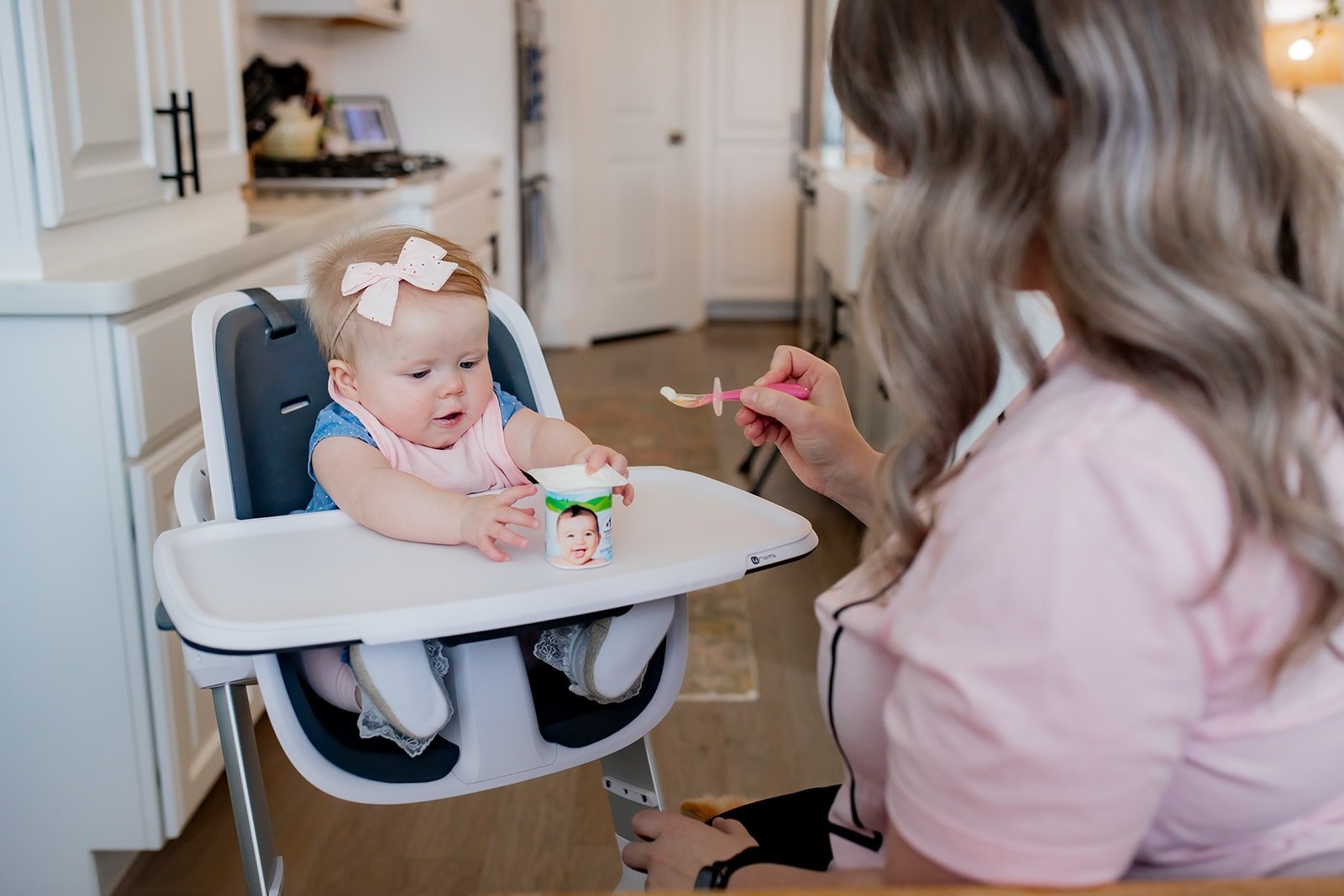
A common question parents have is, “why can my baby have yogurt but not milk?” It’s a good question since it’s not recommended to give milk to babies under the age of one. The difference is yogurt is made by fermentation. The active live cultures in yogurt make the lactose and protein easier for their tiny tummies to digest. Babies cannot digest whole milk as easily or completely as they can with yogurt.
What kind of yogurt is best for babies?
The best choice for your baby to start with is plain, organic, whole milk yogurt. There are no added sweeteners in this yogurt, and the nutritious fat in whole milk helps with proper growth and brain development. Stonyfield’s plain YoBaby yogurt is a perfect first food for your baby, and it’s also great mixed with other fruit and veggie purees.
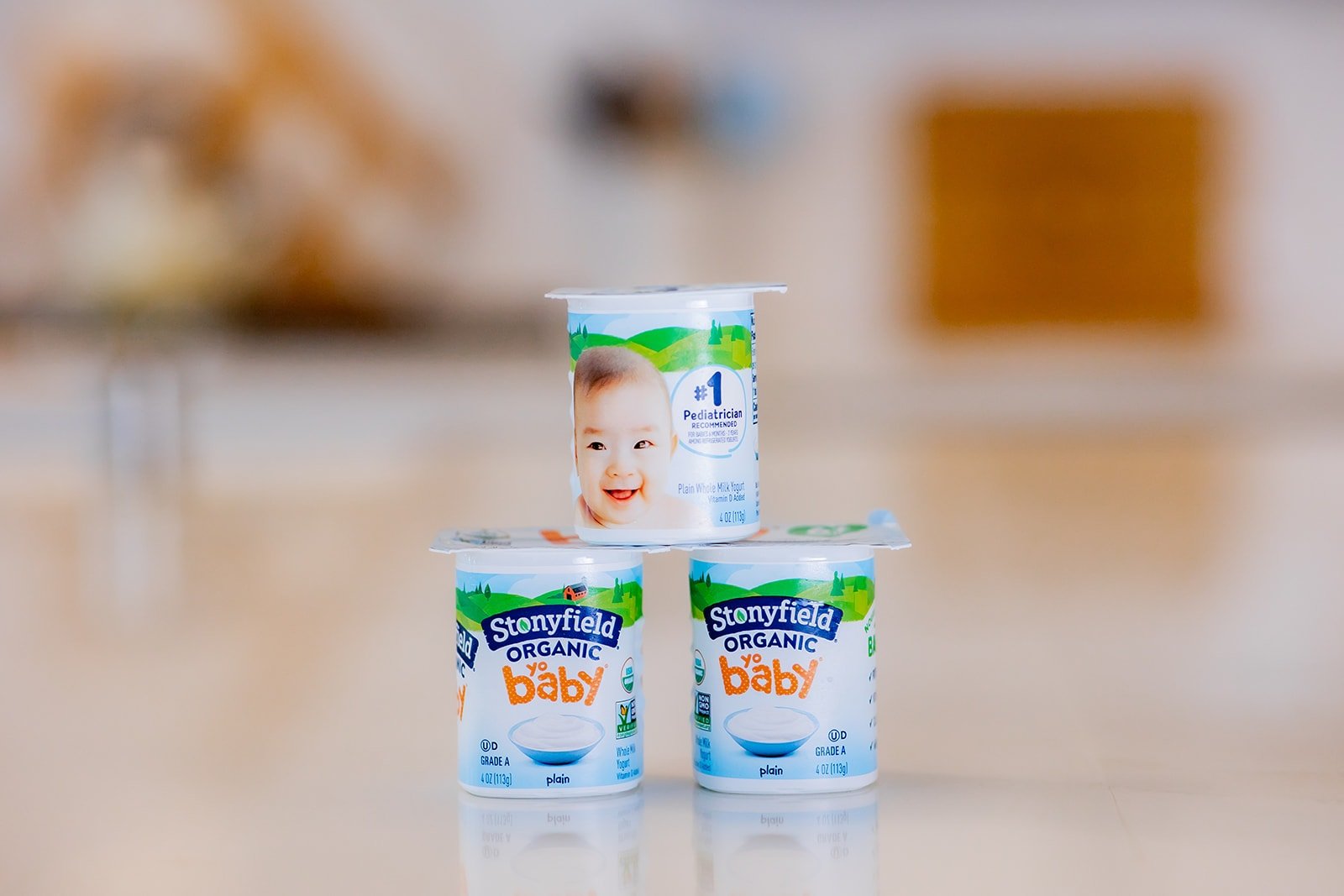
As your baby gets older, you can continue to advance their palates by introducing different yogurt flavors. Stonyfield has blueberry & apple, banana & strawberry, peach & pear, and vanilla! These are great ways to introduce new foods into your baby’s diet. Also, anytime you are introducing new foods, if you see any allergy symptoms like rash, diarrhea, or bloating, consult your pediatric health professional.
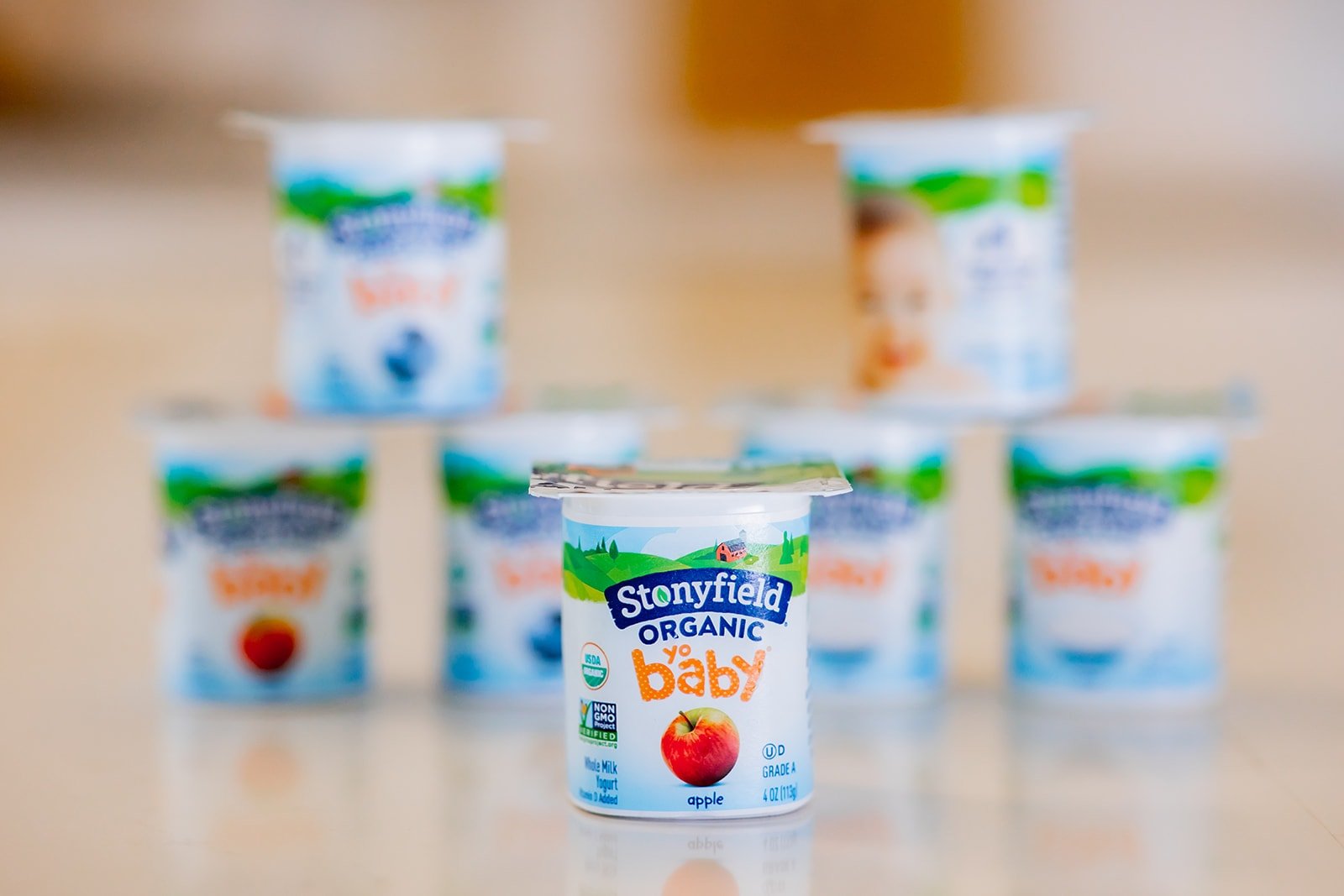
Stonyfield Yobaby yogurt is the brand I recommend. And I’m not the only one. They’re #1 Pediatrician recommended!* Stonyfield Organic Yobaby yogurts are nourishing in nutrients like protein, vitamin D, potassium, and calcium. They’re certified organic, and they have a creamy texture and yummy taste. Their organic yogurt means they are made without harmful pesticides, antibiotics, artificial growth hormones, or genetically modified organisms (GMOs). Parents can feel good and confident about giving Stonyfield Yobaby yogurt to their babies.
How do I introduce yogurt to my baby?
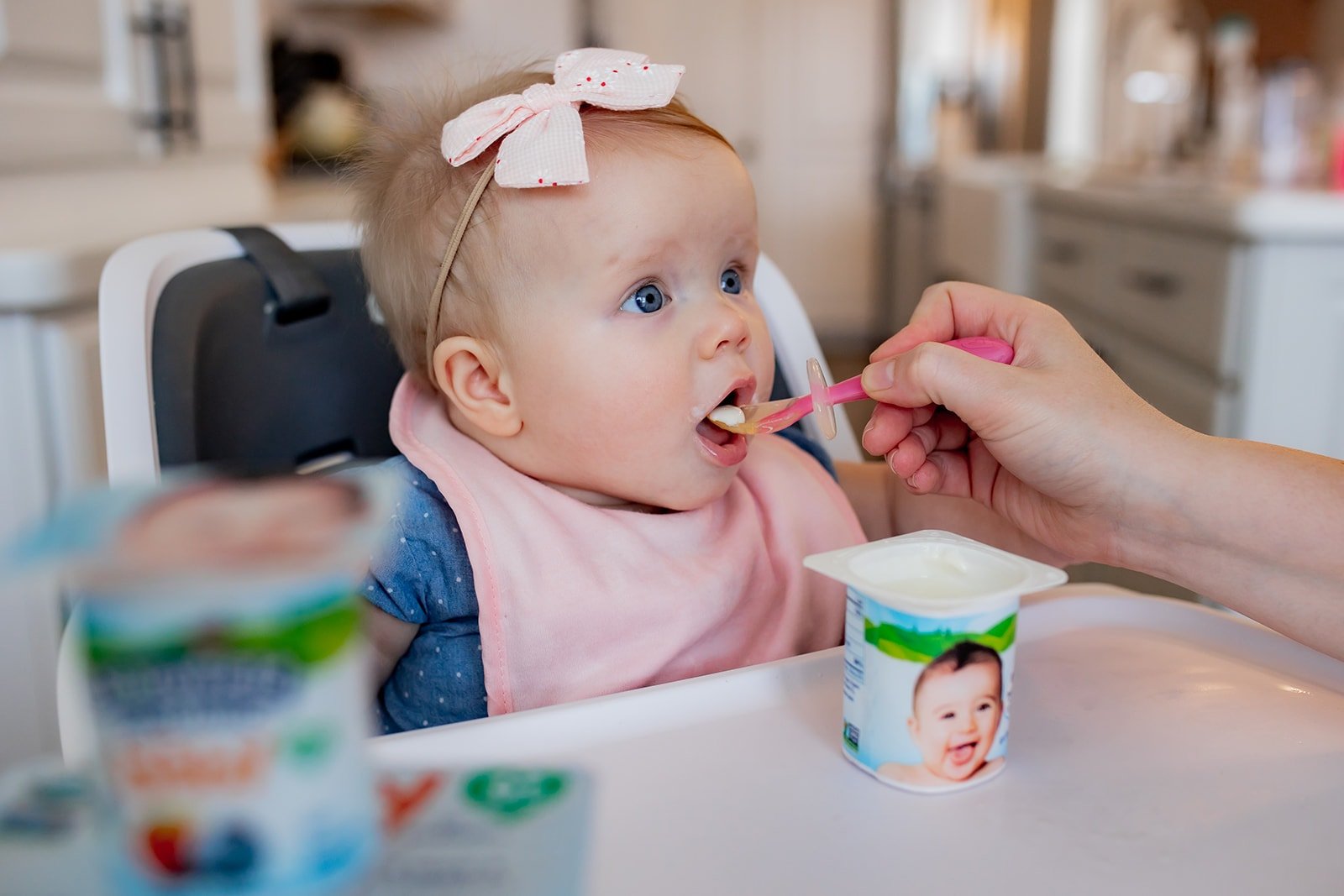
It’s good to add yogurt to your baby’s diet. And when you’re ready to introduce yogurt to your baby, you can offer it three ways. You can give the yogurt to her on a preloaded spoon, you can allow her to self-feed and explore the yogurt with her hands and mouth, or you can offer it in a pouch. The Stonyfield Yobaby pouches are a great option as they easily allow babies to learn how to self-feed!
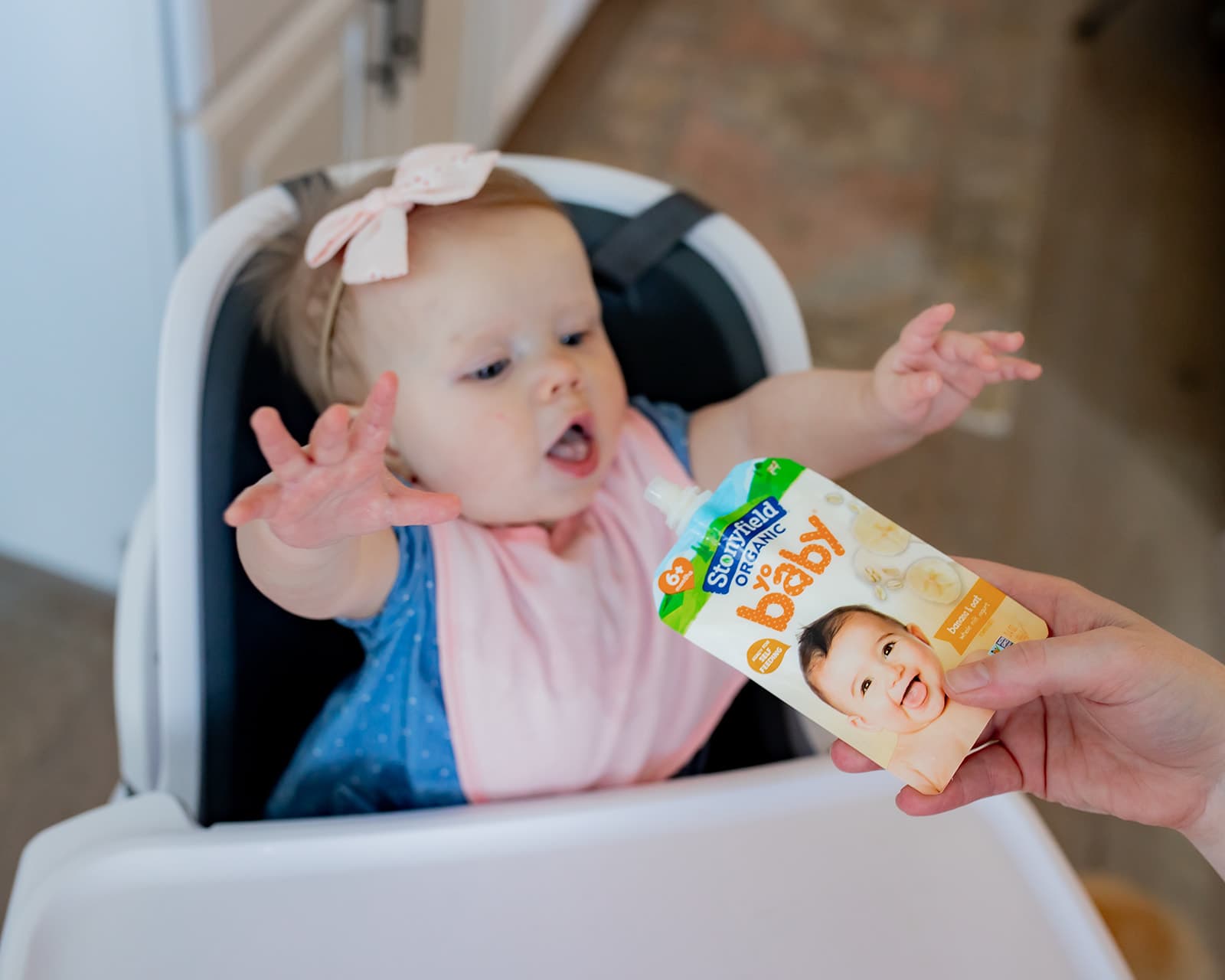
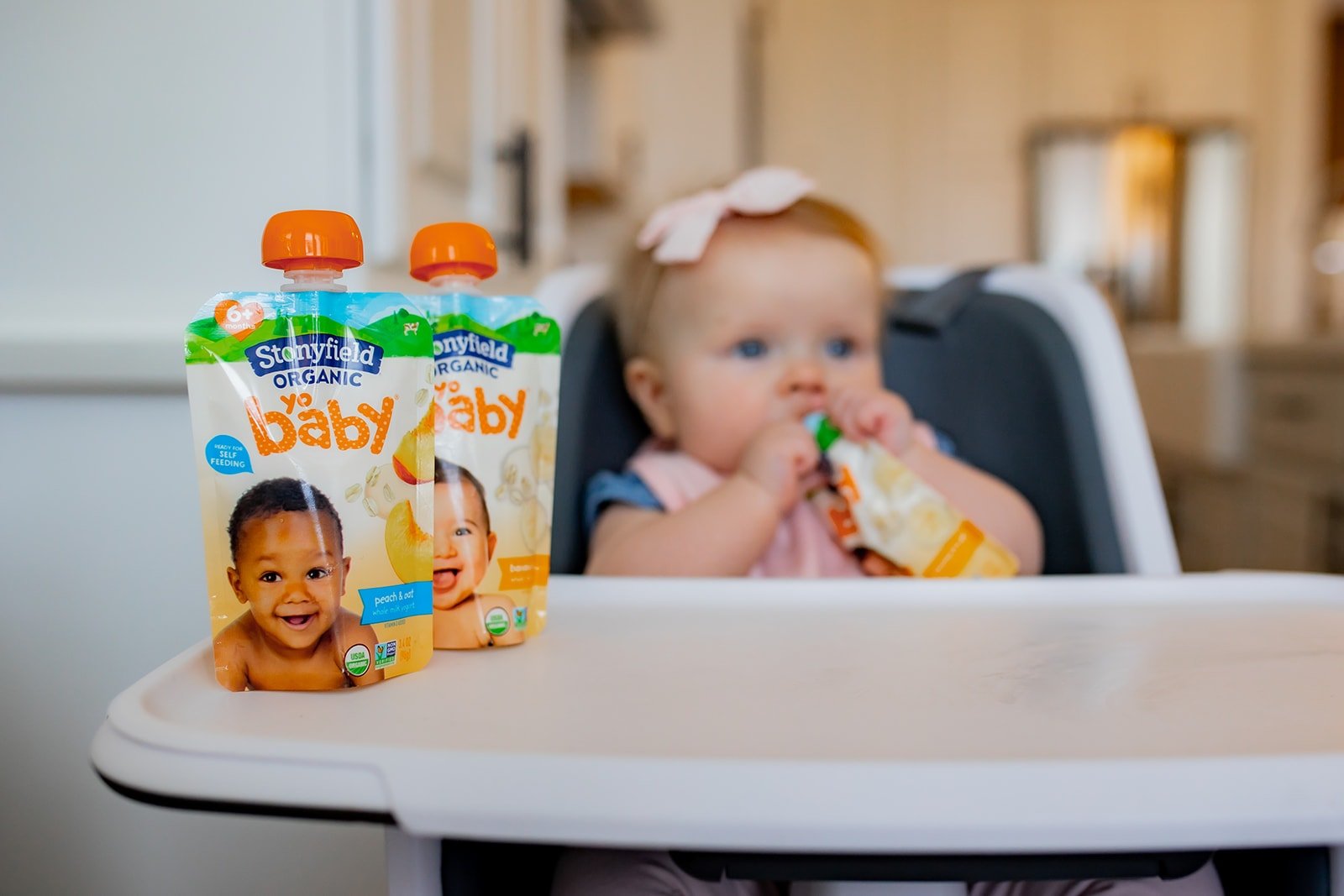
Quick, Quality & Convenient
I also love that Stonyfield Yobaby yogurt is a quick, easy-to-find, quality, and convenient food for babies. Their conveniently packaged yogurt cups and pouches are easy to serve as there is no prep work involved. It’s also perfect for six-month-old babies and older because its creamy texture is palatable and soothing on their teething gums. And as your baby gets older, they’ll love learning how to feed themselves their yogurt on a spoon but until then, practicing with a pouch is perfect!
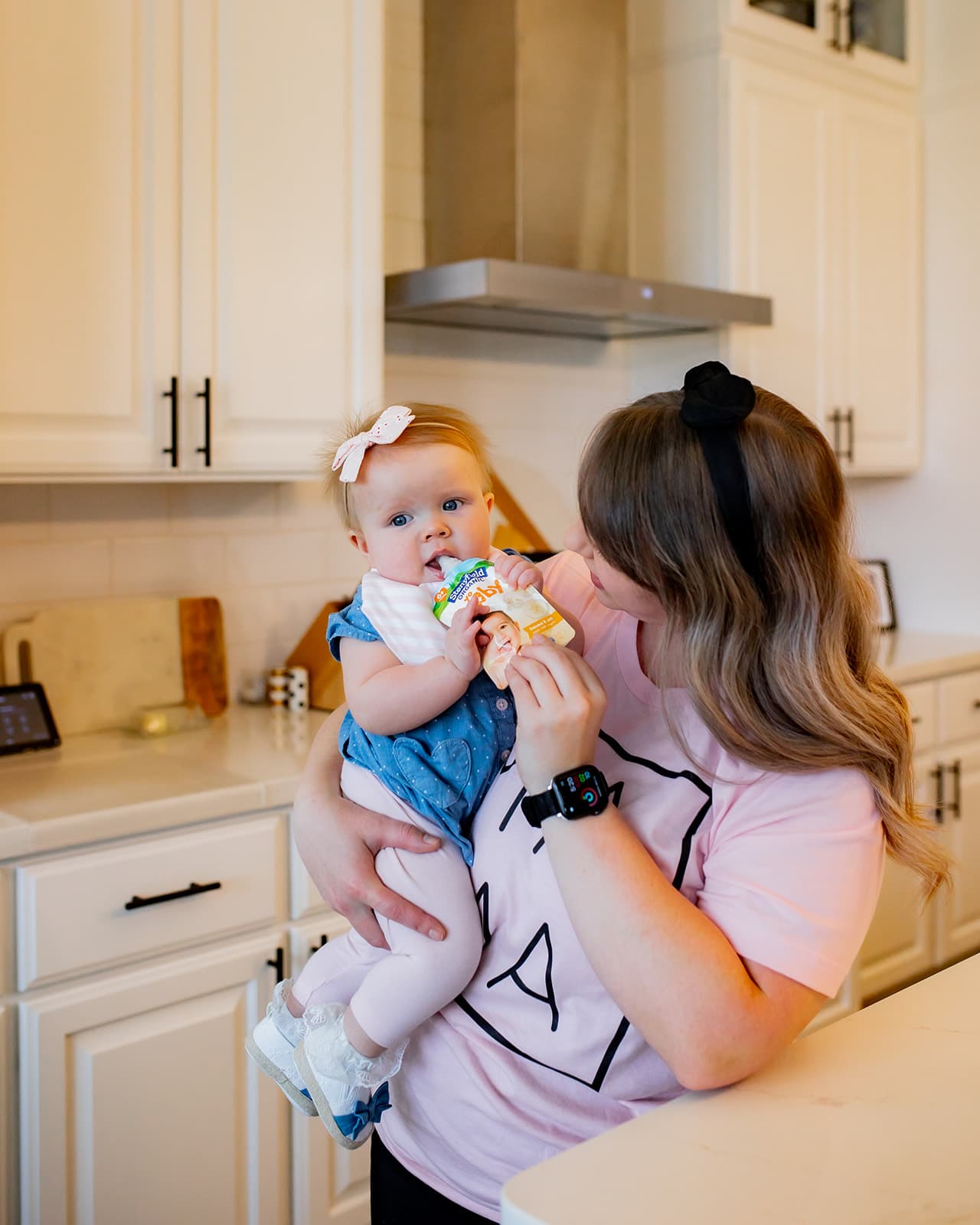
We all want the best for our babies, and when it comes to food introduction, yogurt is a perfect first food to add to their diets. There are so many benefits, and it tastes great too!
*For babies 6 months – 2 years among refrigerated yogurts
(IQVIA ProVoice Survey, 12/01/15-08/31/20)
The views and opinions expressed in this post are solely my own and do not necessarily reflect the opinions and views of Stonyfield. The content provided and in any linked materials are not intended and should not be construed as medical advice. If you have any questions about health or nutrition, we always think it’s best to consult with your doctor or healthcare practitioner.













